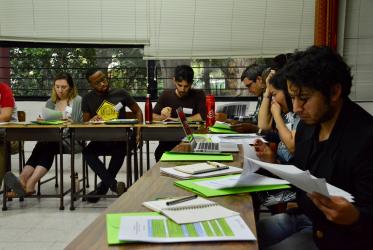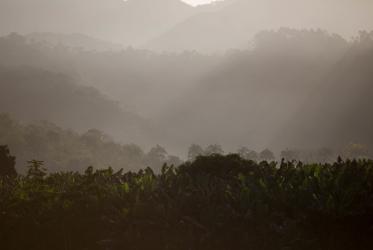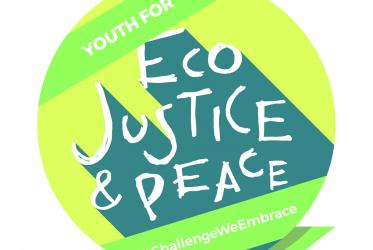Displaying 1 - 20 of 25
All pilgrim routes lead to COP24
11 December 2018
WCC moderator speaks at Justice Conference in Norway
09 November 2018
Voices from Colombia: “What if we have no land to till?”
15 February 2018
Seven weeks of Lent highlight water justice in Latin America
12 February 2018
Protect the Amazon, urges WCC statement
22 November 2017
G20 summit: call to pray for peace in Hamburg
07 July 2017
Hundreds of pilgrims making way to UN Climate Change Conference
27 October 2015












